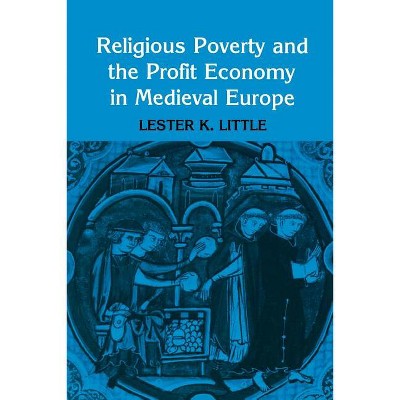About this item
Highlights
- In 1343 a seventeen-year-old girl named Johanna (1326-1382) ascended the Neapolitan throne, becoming the ruling monarch of one of medieval Europe's most important polities.
- About the Author: Elizabeth Casteen is Assistant Professor of History at Binghamton University-The State University of New York.
- 312 Pages
- History, Europe
Description
About the Book
In From She-Wolf to Martyr, Elizabeth Casteen examines Johanna I of Naples's evolving, problematic reputation and uses it as a lens through which to analyze often-contradictory late-medieval conceptions of rulership, authority, and femininity.
Book Synopsis
In 1343 a seventeen-year-old girl named Johanna (1326-1382) ascended the Neapolitan throne, becoming the ruling monarch of one of medieval Europe's most important polities. For nearly forty years, she held her throne and the avid attention of her contemporaries. Their varied responses to her reign created a reputation that made Johanna the most notorious woman in Europe during her lifetime. In From She-Wolf to Martyr, Elizabeth Casteen examines Johanna's evolving, problematic reputation and uses it as a lens through which to analyze often-contradictory late-medieval conceptions of rulership, authority, and femininity.When Johanna inherited the Neapolitan throne from her grandfather, many questioned both her right to and her suitability for her throne. After the murder of her first husband, Johanna quickly became infamous as a she-wolf--a violent, predatory, sexually licentious woman. Yet, she also eventually gained fame as a wise, pious, and able queen. Contemporaries--including Francesco Petrarch, Giovanni Boccaccio, Birgitta of Sweden, and Catherine of Siena--were fascinated by Johanna. Drawing on a wide range of textual and visual sources, Casteen reconstructs the fourteenth-century conversation about Johanna and tracks the role she played in her time's cultural imaginary. She argues that despite Johanna's modern reputation for indolence and incompetence, she crafted a new model of female sovereignty that many of her contemporaries accepted and even lauded.
Review Quotes
Casteen's book... is now the best available introduction to Johanna's life and reign, and the first, much-needed, serious study of late medieval queenship in southern Italy.
-- "American Historical Review"Casteen's study is essential reading for those who seek to understand more about the life, reputation, and times of this enigmatic queen regnant and the important and difficult religious and spiritual questions raised by her reign and by the turbulent times in which she lived.
--Zita Eva Rohr "The Journal of Religion"Perhaps the book's most valuable contribution is in its sensitive handling of medieval preconceptions about femininity, Johanna's opponents made abundant use of negative tropes about women--their irrationality, their lust, their physical and moral weakness--to discredit her claim to authority. But Casteen also explores how Johanna and her partisans manipulated more positive constructions of femininity--such as piety, humility, and obedience--as a means to promote her power while seeming, rhetorically, to limit it.... The book concludes by contrasting Johanna's posthumous reputation in Naples as a she-wolf (to use Boccaccio's term) with her legacy in Provence, another part of her domains, where she was remembered as a pious, almost saintly, maternal figure. It is a testament to Casteen's thorough and evenhanded scholarship that the reader is left not only convinced of the equal legitimacy of these two depictions but also unsurprised by their coexistence.
-- "The Catholic Historical Review"This is an extremely well-conceived book about the long and complex life and reign of Johanna of Naples. It is meticulously researched, and Elizabeth Casteen skillfully handles an impressive range of primary sources, some archival and some published.
--Theresa Earenfight, Seattle University "The King's Other Body: María of Castile and the Crown of Aragon"Through a careful analysis of extensive archival, manuscript, and secondary sources, Casteen (Binghamton Univ.-SUNY) makes an intriguing contribution to recent scholarly discussions of medieval queenship, the creation of reputations, 'cultural imaginary, 'and the reliability of narrative sources. The author traces Johanna I of Naples's shifting public image throughout her reign as she was lambasted by her enemies, marginalized by one husband, criticized by female saints, and lauded by her allies, an image always cast in gendered terms.
--J. M. Pope "Choice"About the Author
Elizabeth Casteen is Assistant Professor of History at Binghamton University-The State University of New York.












